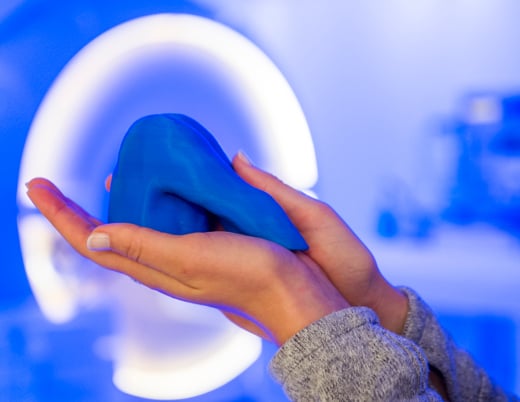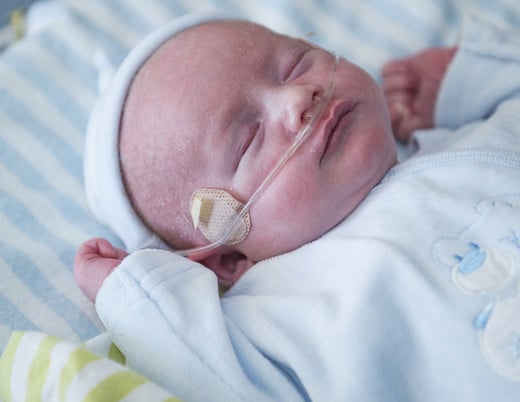Key takeaways
-
This collaborative study in North America compared neonatal outcomes of fetoscopic endoluminal tracheal occlusion (FETO) surgery to expectant management for congenital diaphragmatic hernia (CDH).
-
There was no survival benefit with FETO for severe left-sided CDH, but it may reduce extracorporeal membrane oxygenation (ECMO) duration and morbidity, specifically in severe cases.
-
These findings differ from a large, predominately European study due to the centralized and aggressive use of ECMO in North American CDH care.
-
Additional research is needed to explore long-term outcomes and help further clarify FETO’s role in reducing morbidity among survivors.
Research study background
Fetoscopic endoluminal tracheal occlusion (FETO) is a minimally invasive fetal surgery aimed to enhance lung growth and improve survival for patients with severe congenital diaphragmatic hernia (CDH). Due to a lack of robust evidence, FETO has not replaced expectant management as the standard of care in North America and is considered experimental.
The Colorado Fetal Care Center at Children’s Hospital Colorado is one of the few U.S. centers to provide comprehensive care for CDH, including FETO, and consistently reports excellent outcomes. A previous study found their multidisciplinary, innovative approach to severe CDH without FETO, which includes the aggressive use of extracorporeal membrane oxygenation (ECMO), to be highly effective and improved survival.
“In cases where survival is predicted to be low based on an extensive review of prenatal predictors from fetal imaging, FETO is discussed as a viable option. It sometimes may be the best chance for these babies if families opt to participate.”
-Michael Zaretsky, MD
The Colorado Fetal Care Center joined nine other North American Fetal Therapy Network (NAFTNet) centers in a collaborative study using the largest known cohort of patients with CDH. The study reported procedure-related surgical outcomes of FETO from patients with isolated left-sided CDH. The study further compared neonatal mortality and morbidity in severe cases that underwent FETO to those who received standardized therapy.
Of the 447 patients entered into the FETO Consortium Registry between November 2008 and December 2020, 89 underwent FETO. While six-month survival did not significantly differ, those who underwent FETO had higher rates of preterm pre-labor rupture of membranes, delivered on average three weeks earlier and had lower birth weights. In a sub-analysis comparing patients with severe cases, 63 underwent FETO and 43 were managed expectantly. Although survival was similar for both groups, patients with FETO required fewer days of ECMO.
Clinical implications
While there was no survival benefit for FETO versus standard therapy, findings suggest FETO for severe CDH can be performed safely at high-volume centers with high survival rates and may lessen time on ECMO, potentially reducing morbidity and perhaps mortality.
Findings from this study are a stark contrast to the largest FETO outcomes trial, which was conducted primarily in Europe and suggested significantly higher survival rates for severe cases treated with FETO versus expectant management. North American CDH survival rates are superior to Europe, likely due to more liberal utilization of ECMO and postnatal management with centralized care.
Further, NAFTNet is establishing a registry to gather long-term outcomes data for future studies aimed at clarifying FETO’s role in reducing morbidity among survivors.
Featured researcher

Michael Zaretsky, MD
Director of Research
Colorado Fetal Care Center
Children's Hospital Colorado
Professor
OB-GYN-Maternal Fetal Medicine
University of Colorado School of Medicine





 720-777-0123
720-777-0123










